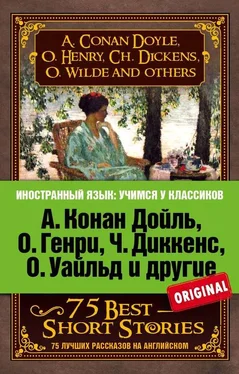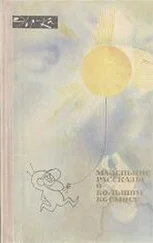‘What does it whisper?’
‘Why – why’ – the boy fidgeted – ‘why, I don’t know! But it’s always short of money, you know, uncle.’
‘I know it, son, I know it.’
‘You know people send mother writs, don’t you, uncle?’
‘I’m afraid I do,’ said the uncle.
‘And then the house whispers like people laughing at you behind your back. It’s awful, that is! I thought if I was lucky—’
‘You might stop it,’ added the uncle.
The boy watched him with big blue eyes, that had an uncanny cold fire in them, and he said never a word.
‘Well then!’ said the uncle. ‘What are we doing?’
‘I shouldn’t like mother to know I was lucky,’ said the boy.
‘Why not, son?’
‘She’d stop me.’
‘I don’t think she would.’
‘Oh!’ – and the boy writhed in an odd way – ‘I don’t want her to know, uncle.’
‘All right, son! We’ll manage it without her knowing.’
They managed it very easily. Paul, at the other’s suggestion, handed over five thousand pounds to his uncle, who deposited it with the family lawyer, who was then to inform Paul’s mother that a relative had put five thousand pounds into his hands, which sum was to be paid out a thousand pounds at a time, on the mother’s birthday, for the next five years.
‘So she’ll have a birthday present of a thousand pounds for five successive years,’ said Uncle Oscar. ‘I hope it won’t make it all the harder for her later.’
Paul’s mother had her birthday in November. The house had been ‘whispering’ worse than ever lately, and even in spite of his luck, Paul could not bear up against it. He was very anxious to see the effect of the birthday letter, telling his mother about the thousand pounds.
When there were no visitors, Paul now took his meals with his parents, as he was beyond the nursery control. His mother went into town nearly every day. She had discovered that she had an odd knack of sketching furs and dress materials, so she worked secretly in the studio of a friend who was the chief ‘artist’ for the leading drapers. She drew the figures of ladies in furs and ladies in silk and sequins for the newspaper advertisements. This young woman artist earned several thousand pounds a year, but Paul’s mother only made several hundreds, and she was again dissatisfied. She so wanted to be first in something, and she did not succeed, even in making sketches for drapery advertisements.
She was down to breakfast on the morning of her birthday. Paul watched her face as she read her letters. He knew the lawyer’s letter. As his mother read it, her face hardened and became more expressionless. Then a cold, determined look came on her mouth. She hid the letter under the pile of others, and said not a word about it.
‘Didn’t you have anything nice in the post for your birthday, mother?’ said Paul.
‘Quite moderately nice,’ she said, her voice cold and absent.
She went away to town without saying more.
But in the afternoon Uncle Oscar appeared. He said Paul’s mother had had a long interview with the lawyer, asking if the whole five thousand could not be advanced at once, as she was in debt.
‘What do you think, uncle?’ said the boy.
‘I leave it to you, son.’
‘Oh, let her have it, then! We can get some more with the other,’ said the boy.
‘A bird in the hand is worth two in the bush, laddie!’ said Uncle Oscar.
‘But I’m sure to know for the Grand National; or the Lincolnshire; or else the Derby. I’m sure to know for one of them,’ said Paul.
So Uncle Oscar signed the agreement, and Paul’s mother touched the whole five thousand. Then something very curious happened. The voices in the house suddenly went mad, like a chorus of frogs on a spring evening. There were certain new furnishings, and Paul had a tutor. He was really going to Eton, his father’s school, in the following autumn. There were flowers in the winter, and a blossoming of the luxury Paul’s mother had been used to. And yet the voices in the house, behind the sprays of mimosa and almond-blossom, and from under the piles of iridescent cushions, simply trilled and screamed in a sort of ecstasy: ‘There must be more money! Oh-h-h! There must be more money! Oh, now, now-w! now-w-w – there must be more money! – more than ever! More than ever!’
It frightened Paul terribly. He studied away at his Latin and Greek with his tutors. But his intense hours were spent with Bassett. The Grand National had gone by: he had not ‘known,’ and had lost a hundred pounds. Summer was at hand. He was in agony for the Lincoln. But even for the Lincoln he didn’t ‘know,’ and he lost fifty pounds. He became wild-eyed and strange, as if something were going to explode in him.
‘Let it alone, son! Don’t you bother about it!’ urged Uncle Oscar. But it was as if the boy couldn’t really hear what his uncle was saying.
‘I’ve got to know for the Derby! I’ve got to know for the Derby!’ the child reiterated, his big blue eyes blazing with a sort of madness.
His mother noticed how overwrought he was.
‘You’d better go to the seaside. Wouldn’t you like to go now to the seaside, instead of waiting? I think you’d better,’ she said, looking down at him anxiously, her heart curiously heavy because of him.
But the child lifted his uncanny blue eyes.
‘I couldn’t possibly go before the Derby, mother!’ he said. ‘I couldn’t possibly!’
‘Why not?’ she said, her voice becoming heavy when she was opposed. ‘Why not? You can still go from the seaside to see the Derby with your Uncle Oscar, if that’s what you wish. No need for you to wait here. Besides, I think you care too much about these races. It’s a bad sign. My family has been a gambling family, and you won’t know till you grow up how much damage it has done. But it has done damage. I shall have to send Bassett away, and ask Uncle Oscar not to talk racing to you, unless you promise to be reasonable about it: go away to the seaside and forget it. You’re all nerves!’
‘I’ll do what you like, mother, so long as you don’t send me away till after the Derby,’ the boy said.
‘Send you away from where? Just from this house?’
‘Yes,’ he said, gazing at her.
‘Why, you curious child, what makes you care about this house so much, suddenly? I never knew you loved it!’
He gazed at her without speaking. He had a secret within a secret, something he had not divulged, even to Bassett or to his Uncle Oscar.
But his mother, after standing undecided and a little bit sullen for some moments, said:
‘Very well, then! Don’t go to the seaside till after the Derby, if you don’t wish it. But promise me you won’t let your nerves go to pieces! Promise you won’t think so much about horse-racing and events, as you call them!’
‘Oh no!’ said the boy, casually. ‘I won’t think much about them, mother. You needn’t worry. I wouldn’t worry, mother, if I were you.’
‘If you were me and I were you,’ said his mother, ‘I wonder what we should do!’
‘But you know you needn’t worry, mother, don’t you?’ the boy repeated.
‘I should be awfully glad to know it,’ she said wearily.
‘Oh, well, you can, you know. I mean you ought to know you needn’t worry!’ he insisted.
‘Ought I? Then I’ll see about it,’ she said.
Paul’s secret of secrets was his wooden horse, that which had no name. Since he was emancipated from a nurse and a nursery governess, he had had his rocking-horse removed to his own bedroom at the top of the house.
‘Surely you’re too big for a rocking-horse!’ his mother had remonstrated.
Читать дальше
Конец ознакомительного отрывка
Купить книгу












